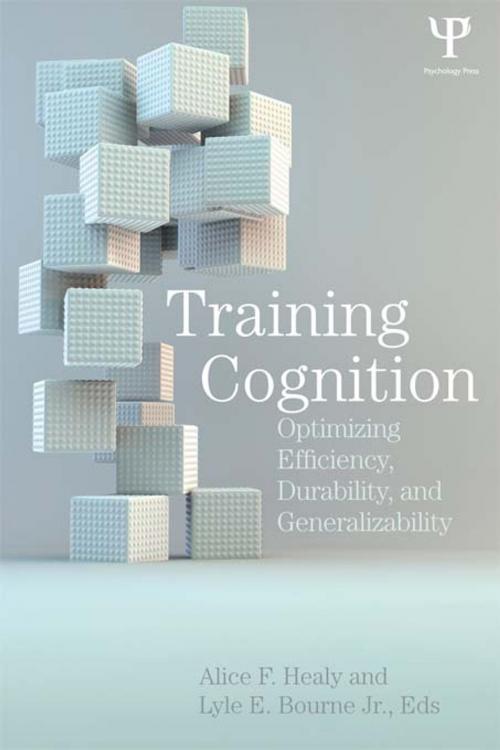Training Cognition
Optimizing Efficiency, Durability, and Generalizability
Nonfiction, Health & Well Being, Psychology, Applied Psychology| Author: | ISBN: | 9781136724572 | |
| Publisher: | Taylor and Francis | Publication: | August 21, 2012 |
| Imprint: | Psychology Press | Language: | English |
| Author: | |
| ISBN: | 9781136724572 |
| Publisher: | Taylor and Francis |
| Publication: | August 21, 2012 |
| Imprint: | Psychology Press |
| Language: | English |
Training is both a teaching and a learning experience, and just about everyone has had that experience. Training involves acquiring knowledge and skills. This newly acquired training information is meant to be applicable to specific activities, tasks, and jobs. In modern times, where jobs are increasingly more complex, training workers to perform successfully is of more importance than ever. The range of contexts in which training is required includes industrial, corporate, military, artistic, and sporting, at all levels from assembly line to executive function. The required training can take place in a variety of ways and settings, including the classroom, the laboratory, the studio, the playing field, and the work environment itself.
The general goal of this book is to describe the current state of research on training using cognitive psychology to build a complete empirical and theoretical picture of the training process. The book focuses on training cognition, as opposed to physical or fitness training. It attempts to show how to optimize training efficiency, durability, and generalizability. The book includes a review of relevant cognitive psychological literature, a summary of recent laboratory experiments, a presentation of original theoretical ideas, and a discussion of possible applications to real-world training settings.
Training is both a teaching and a learning experience, and just about everyone has had that experience. Training involves acquiring knowledge and skills. This newly acquired training information is meant to be applicable to specific activities, tasks, and jobs. In modern times, where jobs are increasingly more complex, training workers to perform successfully is of more importance than ever. The range of contexts in which training is required includes industrial, corporate, military, artistic, and sporting, at all levels from assembly line to executive function. The required training can take place in a variety of ways and settings, including the classroom, the laboratory, the studio, the playing field, and the work environment itself.
The general goal of this book is to describe the current state of research on training using cognitive psychology to build a complete empirical and theoretical picture of the training process. The book focuses on training cognition, as opposed to physical or fitness training. It attempts to show how to optimize training efficiency, durability, and generalizability. The book includes a review of relevant cognitive psychological literature, a summary of recent laboratory experiments, a presentation of original theoretical ideas, and a discussion of possible applications to real-world training settings.















